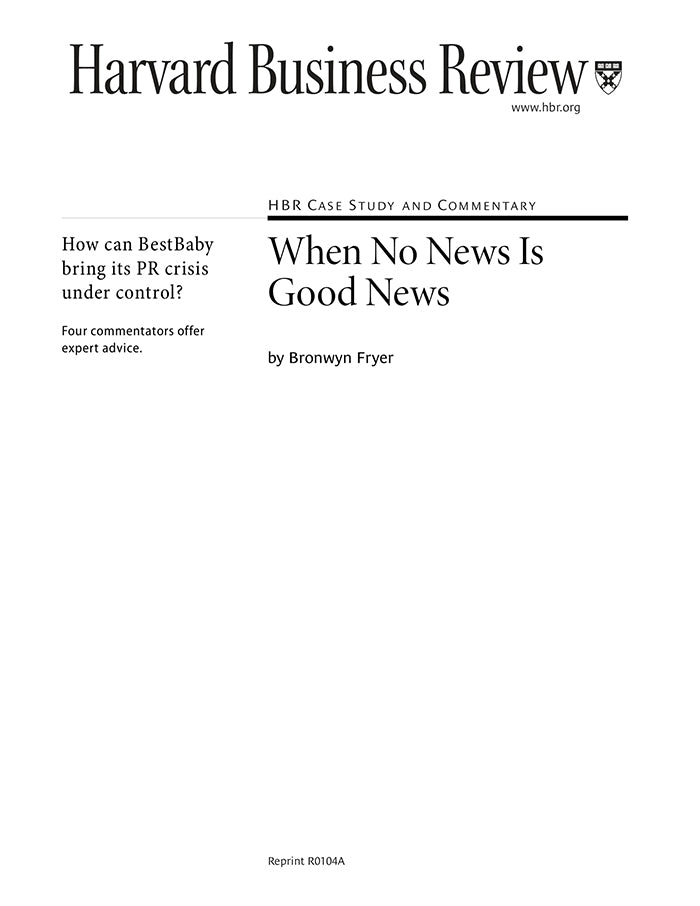When No News Is Good News (HBR Case Study and Commentary)
受取状況を読み込めませんでした
THIS CASE STUDY INCLUDES BOTH THE CASE AND THE COMMENTARY. FOR TEACHING PURPOSES, THE REPRINT IS ALSO AVAILABLE IN TWO OTHER VERSIONS: CASE STUDY ONLY, REPRINT R0104X, AND COMMENTARY ONLY, REPRINT R0104Z. For as long as can be remembered, BestBaby Corp., a manufacturer of baby equipment and furniture, has enjoyed a solid reputation with retailers, a good track record with consumers, and a supportive relationship with stockholders. But then the child of a celebrity is injured when her stroller tips over because its brakes failed. The media go wild, and CEO Greg James finds himself in uncharted territory. The morning after the accident, Greg calls an emergency meeting of his executive staff. As he searches his memory to prepare for it, he thinks about Arzep Enterprises, BestBaby's main provider of parts and materials. He remembers his COO, Keith Sigismund, telling him that Arzep had switched suppliers at some point in order to cut its own costs. Nevertheless, Keith had assured Greg that the new material, although not quite as sturdy, hadn't affected the quality of Arzep's components. Then in the meeting, Keith drops a bombshell: he reads from a year-old memo sent to him by an employee in manufacturing stating that the new brake fittings delivered by Arzep don't grab the front brakes as well as the ones previously supplied. In this fictional case study, four commentators offer advice to Greg on how BestBaby should respond to the victim's family, the media, the public, and the company's own employees during this PR crisis. In R0104A and R0104Z, John R. Hall, Ian Mitroff, Robin Cohn, and Alan H. Schoem offer advice to Greg on how BestBaby should respond to the victim's family, the media, the public, and the company's own employees during this PR crisis.
【書誌情報】
ページ数:8ページ
サイズ:A4
商品番号:HBSP-R0104A
発行日:2001/4/1
登録日:2011/7/29


